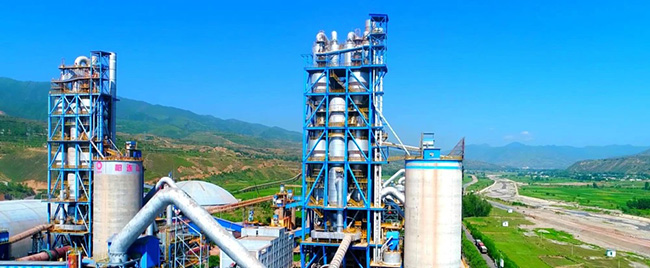With the continuous progress of technology and the rapid development of industrial fields, automation technology has been widely applied in various industries, including cement production. As an important supplier of infrastructure materials, cement plants face many challenges and demands in the production process, one of which is to achieve intelligent and automated management of the production process. As a key network device, industrial network switches play an indispensable role in the automation system of cement plants. This article will explore the application and key role of industrial network switches in the automation system of cement plants.
Overview of cement plant automation system
The cement production process involves multiple links such as raw material processing, calcination, and grinding, which traditionally require a large amount of manual intervention and monitoring. With the application of automation technology, cement plants have begun to achieve automated control and monitoring of the production process, thereby improving production efficiency, reducing costs, and reducing the impact of human factors on the production process.
2. The role of industrial network switches in the automation system of cement plants
2.1 Data transmission and communication
Industrial network switches transmit real-time data from various production processes to the control center through reliable data transmission and efficient communication functions. These data include the operating status, temperature, pressure, current and other parameters of production equipment, as well as various monitoring data during the production process. The switch ensures reliable data transmission and ensures that the control center can timely and accurately obtain data information from various links.
2.2 Equipment Management and Control
The industrial network switch connects various equipment in the cement plant, such as PLC controllers, sensors, actuators, etc. on the production line. Through switches, the control center can achieve remote management and control of these devices, including functions such as device switching, adjustment, and monitoring. In this way, production management personnel can monitor the operating status of equipment in real time, adjust production parameters in a timely manner, optimize the production process, and improve production efficiency.
2.3 Safety and stability
Industrial network switches have strict security and stability requirements, and are particularly important in the automation system of cement plants. The switch ensures network security and prevents unauthorized access and attacks through various security mechanisms such as VLAN isolation, access control lists (ACLs), traffic monitoring, etc. Meanwhile, the high reliability and stability of the switch ensure the continuous and stable operation of the system, avoiding production interruptions caused by network failures.

3. Advantages of industrial network switches in cement plant automation systems
3.1 Real time and accuracy
Industrial network switches can achieve real-time data transmission and processing, ensuring real-time monitoring and control of the production process. At the same time, switches have high precision, which can accurately transmit various types of data and ensure the accuracy and completeness of data, providing reliable data support for production decision-making.
3.2 Scalability and flexibility
With the expansion of cement plant production scale and changes in production processes, industrial network switches have good scalability and flexibility. It is possible to flexibly configure the network topology structure according to actual needs, add new devices and functional modules, and meet the network requirements of different production stages and requirements.
3.3 Cost effectiveness
The application of industrial network switches can greatly reduce the operation and management costs of cement plant automation systems. Through centralized network management and remote monitoring, the workload of manual intervention and inspection has been reduced, work efficiency has been improved, operating costs have been reduced, and cost-effectiveness has been improved.
Characteristics of Houshi Industrial Network Switches:
1. A plug and play fast redundant ring network effectively improves the high reliability of the cement plant communication network. A single point of failure does not affect the normal communication of other nodes. The unique high-speed distributed G protocol ensures a network failure recovery time of less than 30ms.
2. Reliable electromagnetic compatibility design, able to work in harsh electromagnetic environments, and has high protection in data port lightning protection, fast pulse burst, static electricity, etc., with a protection level of up to IP40.
3. Good temperature characteristics, working environment temperature is -40 ℃~+85 ℃; Working humidity of 5%~95% (without condensation).
4. Dual power backup design, DC power supply mode, effectively improves the safety and reliability of the system.
5. The enclosed design meets the needs of dust prevention, with no fan folding structure for heat dissipation, and has good dust prevention and heat dissipation, supporting industrial rail installation.
Industrial network switches play a crucial role in the automation system of cement plants, providing reliable network support for the intelligent production of cement plants through functions such as data transmission, equipment management, and security protection. With the continuous development and application of automation technology, industrial network switches will continue to play an important role in promoting the cement industry towards intelligence and digitization.
Contact: sales
Phone: 18688787693
E-mail: sales@hsindustrialswitch.com
Add: Room 608, Building B,GaoXinQi TEC Park,Baoan District, ShenZhen,China